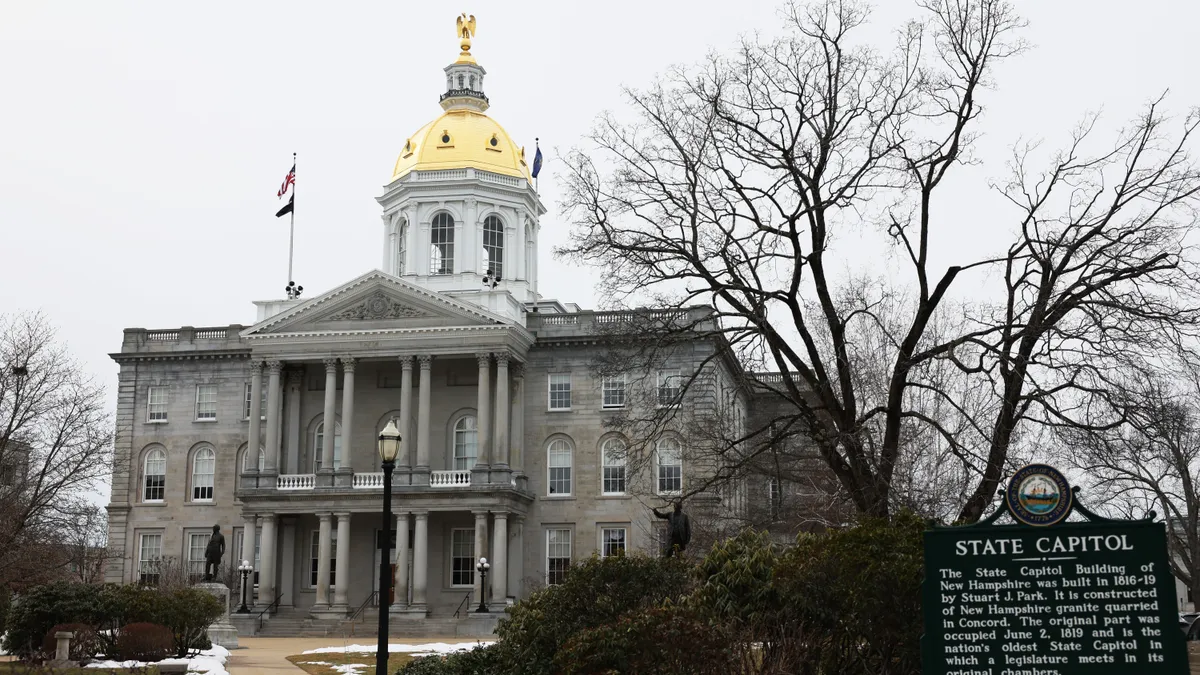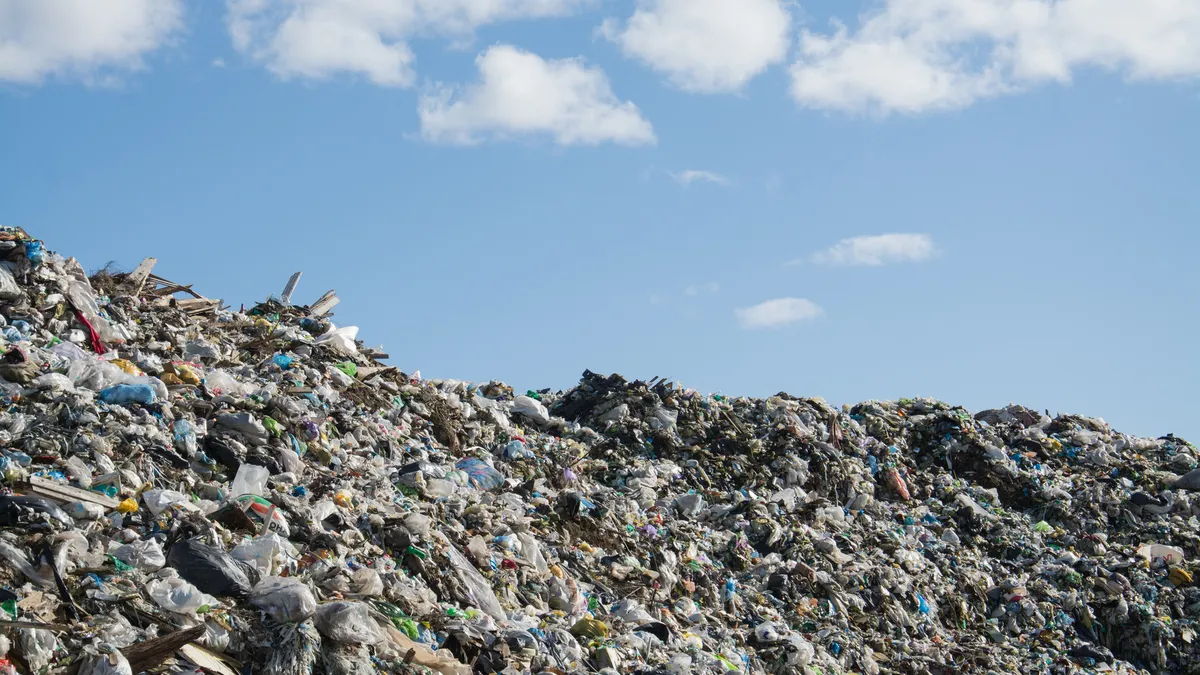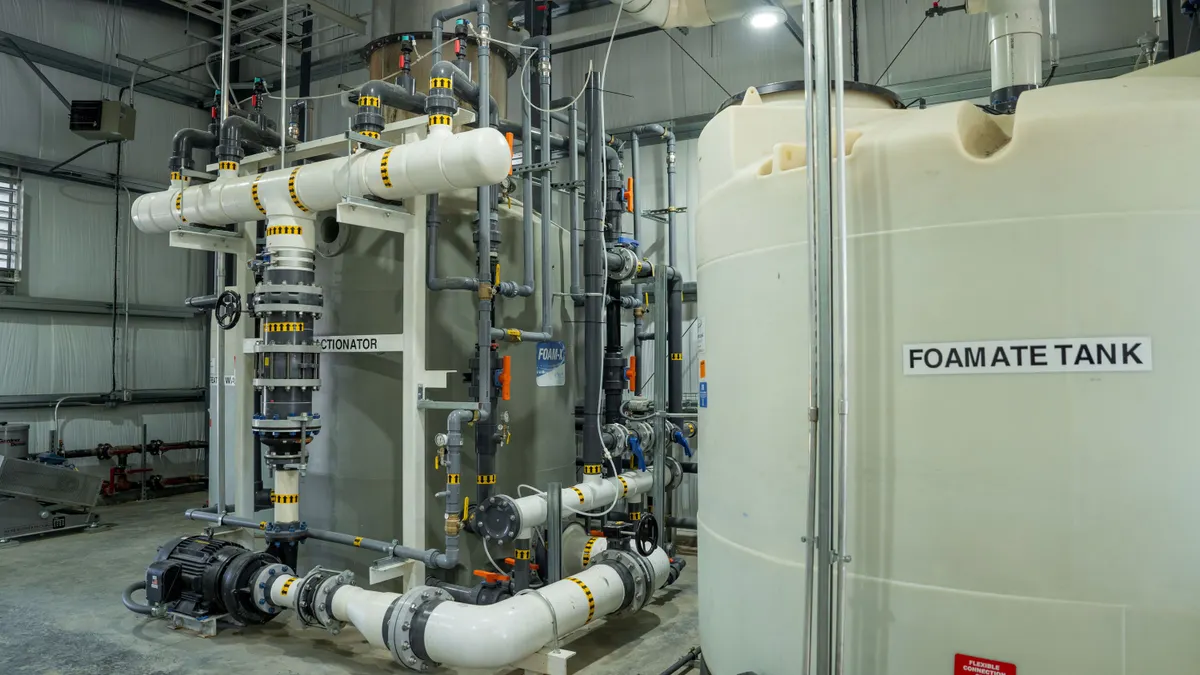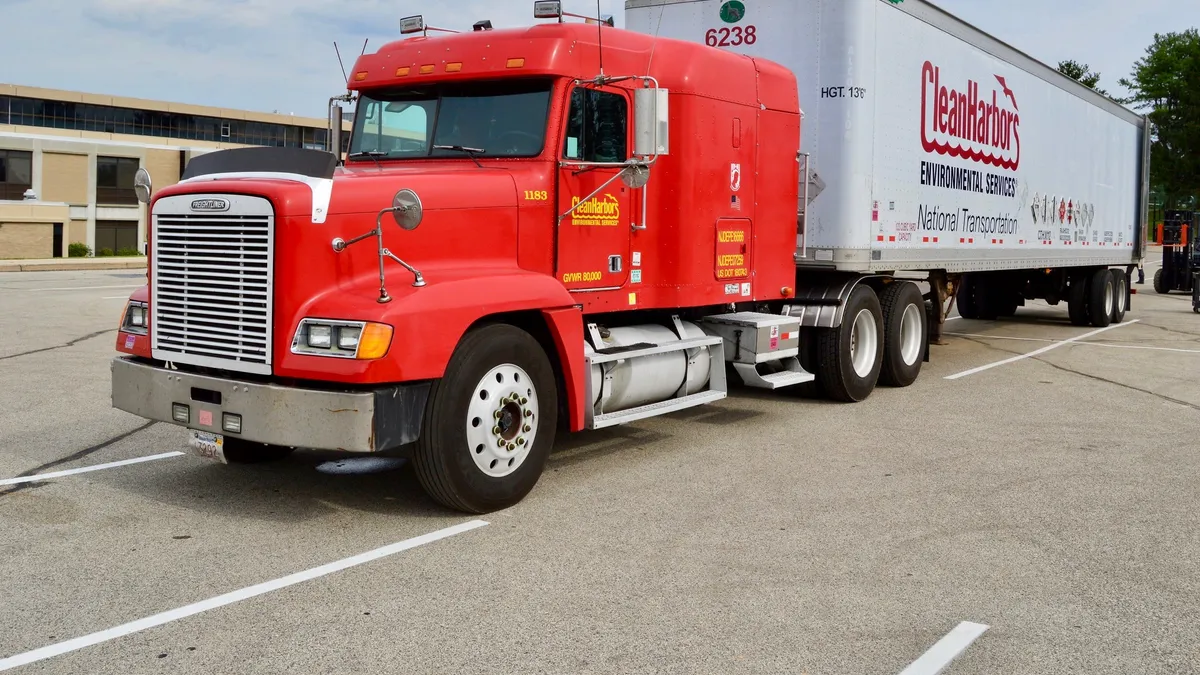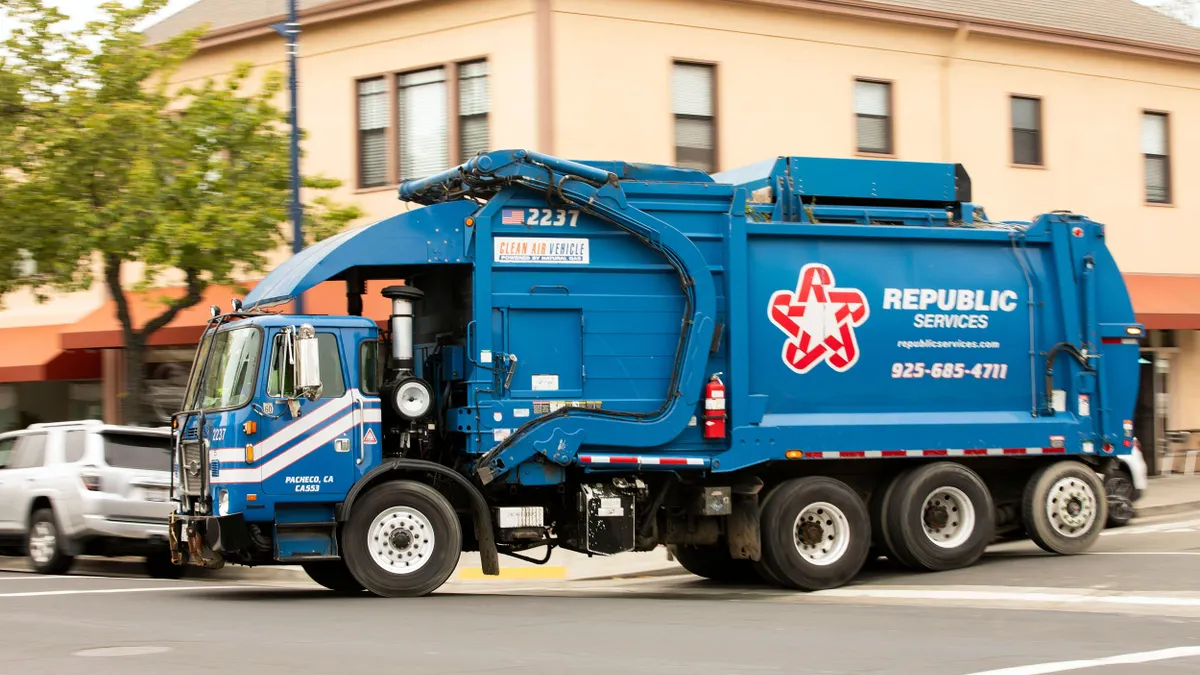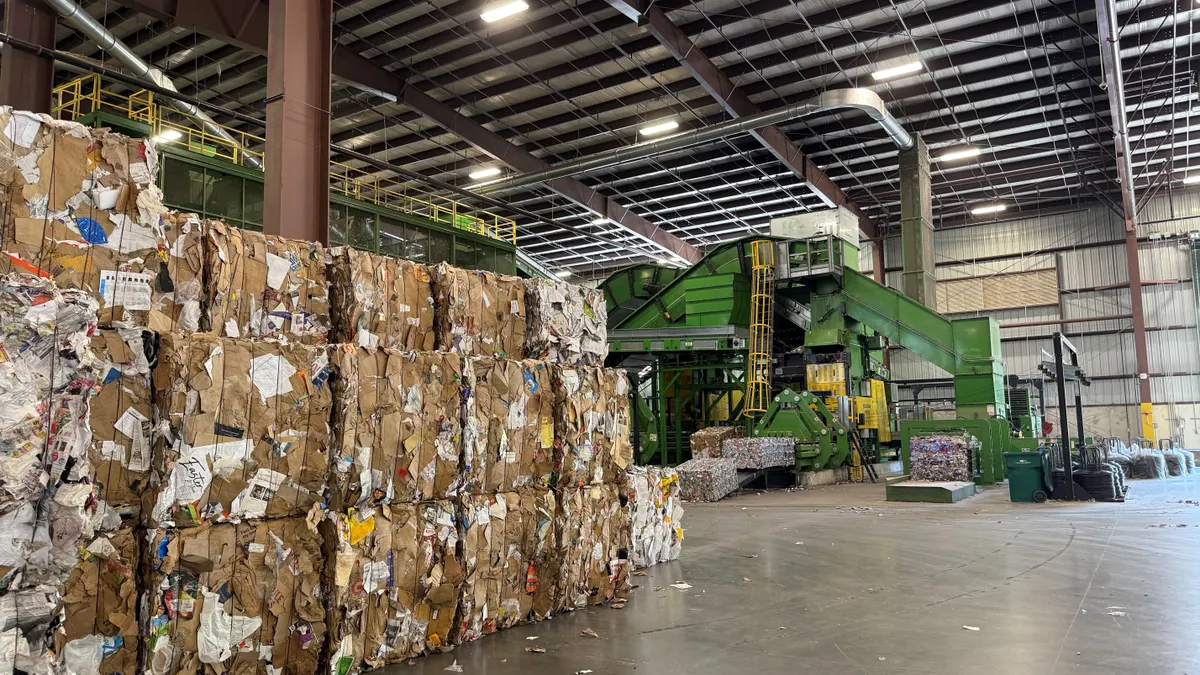A bill pausing permits for new landfills in New Hampshire failed to pass before the end of the state legislative season, but the state is still moving forward with plans to update a series of landfill rules that will sunset in July next year.
New Hampshire’s Department of Environmental Services will host a public input session on Wednesday to get feedback on how the state should update or change its rules around landfill siting requirements. Any new rules are expected to directly shape future landfill projects in the state, which could include a greenfield project Casella Waste Systems has proposed in Dalton, New Hampshire.
That hearing is expected to attract significant community attention because the topic of landfill siting is related to a controversial bill, SB 61, that died in committee on June 29. That bill would have paused siting of new landfills for two years to review state rules on setbacks near surface water. The bill would have also directed DES to spend about $200,000 to hire a firm to review the state’s existing criteria for setbacks and make recommendations on how to move forward when it evaluates future projects. The bill did not apply to permits to expand existing landfills.
DES is still on the clock to update the state’s landfill rules. Chapter 800, the section outlining such rules, must undergo a review regardless of whether SB 61 or other competing landfill-related bills had passed, said Mike Wimsatt, director of DES’s waste management division. DES will need to present an initial proposal and begin the formal rulemaking process by January 2024 in order to meet the July 2024 sunset deadline, he said.
The hearing on Wednesday will only focus on rules dictating landfill siting. DES already held a series of public input sessions on proposed ideas for other updates, such as design, construction, storage, permitting, gas monitoring and other elements. DES did not address siting and water-related setbacks in earlier meetings because the state legislature was still mulling bills related to that issue, Wimsatt said.
“The things we’re thinking about changing in Chapter 800 are myriad, as you can imagine, because these rules haven't been updated for 10 years,” he said.
Along with feedback from residents, legislation like SB 61 and a competing bill, HB 56, would have shaped the direction DES took in reviewing and updating such rules, he said. That bill would have established specific frameworks for how to determine the distance a new landfill can be sited from a body of water.
The failure of SB 61 underscores how contentious the state’s landfill rule update process has been. The state legislature has worked for several years to pass bills reforming the state landfill setback rules to prevent leachate from contaminating bodies of water before operators could mitigate the spill. Yet differing views on how to update the rules and make site-specific recommendations have stalled progress.
DES supported SB 61, along with Casella, and bill sponsors pitched the bill as a workable bipartisan compromise after months of debate. The bill cleared the state Senate and House of Representatives, but legislators ultimately shot down the bill at the last minute in a conference committee, saying Casella had too much influence on how the bill and its amendments were written.
Some environmental and industry groups had also opposed SB 61, including Just Zero and environmental group Slingshot, saying it gave too much power to landfill operators. The groups preferred HB 56, which passed the House but died in the Senate.
Republican Rep. Kelley Potenza said she plans to file an ethics complaint against Casella, saying the company was allowed to get too involved in changes that would benefit its plans without adequately addressing health and safety aspects. She is in the process of gathering support for the complaint from other lawmakers and activists. “This is a case of profits over people,” she said.
Jeff Weld, Casella’s director of communications, called the ethics claim “baseless.” Both Casella and DES say it’s common for stakeholders to weigh in on active legislation and believe the company’s involvement wasn’t an overreach.
“There is nothing unusual or nefarious about a company weighing in on New Hampshire laws that will impact the very service that it is devoted to providing to New Hampshire residents,” Weld said.
While DES works on updating Chapter 800, Casella said it will continue to work on permit plans for the Dalton landfill, also known as the Granite State Landfill project. Last summer, Casella withdrew its permit application for the Dalton landfill after state regulators said it was incomplete, but Weld said the company is “excited to be moving forward” with plans to submit new permit applications in the next several weeks.
Environmental groups and some residents have long opposed the Dalton landfill proposal. Casella also operates a landfill in nearby Bethlehem, New Hampshire, as well as several transfer stations and a recycling center in other parts of the state.
“We don't want more landfills in the North Country,” said Hayley Jones, a state director for Slingshot. "Waste is not an isolated issue, and you've got a lot more awareness [from the public] now about the interconnection of issues like water quality and water pollution and the growing awareness around PFAS in landfill leachate.”
Action around landfill permitting and setbacks is also part of a larger conversation in the state about how to handle its waste. About 47% of solid waste disposed in New Hampshire in 2020 was generated outside the state, a source of “significant concern” to the public, according to a report from the NH Solid Waste Working Group established by DES.
Wimsatt expects the public, environmental groups, legislators and industry representatives will stay heavily involved as landfill-related decisions take shape in the state. “The idea of siting landfills in New Hampshire is an issue of great, great interest right now,” he said.



